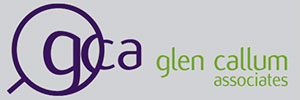Interview Techniques and Interview Questions
Following these simple pointers will help you secure the job.
We invite you to accept these guidelines with the spirit intended. You may well have attended many interviews in the past and feel that you have mastered the art – however, reading the following may alert you to something simple that you might just have overlooked.
Interviews are personal, live situations so you will at some stage be required to think on your feet. Preparation is a key element to the success of your interview; therefore ensure that you obtain information about the Company, its products or services.
Review your CV and remind yourself of the qualities highlighted within the advert / job specification – How do you match the criteria?
Try to visualise your interview from the interviewer’s perspective – What would he or she want to find out about you?
Are you aware of the duties and requirements of the role for which you are being interviewed?
Be yourself… It is not uncommon for people to feel nervous about revealing their true personality at the interview stage. Try to relax, answer questions directed to you with a POSITIVE manner, and allow your personality to shine through. Trying to be someone else at the interview could result in staying that way for a long time!
Be positive – make notes… Make notes both prior to and during the interview. This demonstrates to the interviewer that you have given some thought to the interview and also allows you to record areas that the interviewer may re-address further into the meeting or at an additional interview. Don’t be afraid to refer to your notes.
Show a genuine interest… Adopt a positive attitude and ask well-directed questions about the company, products or role requirements. This is an ideal opportunity to find out additional information on the Company and position before you join – refer to your pre-prepared notes!
Do not enquire about holiday entitlement, sick leave etc. during the interview this may demonstrate to the interviewer a lack of commitment.
at the interview…
First impressions are very powerful
What type of impression would you like to create? You never get a second chance to make a first impression, therefore the first sixty seconds are vital.
Be punctual! Allow more than sufficient time for travelling, if you are early use the time effectively – review your preparation.
If you are unavoidably delayed ensure you notify your interviewer as soon as possible stating your scheduled interview time and your expected arrival time.
Maintain your alertness at all times – even if you are waiting in a reception area. You may be observed from the time you enter the building. What influence may the receptionist have?
Be confident and smile… Greet the interviewer with a firm handshake and introduce yourself confidently. (Limp handshakes imply lack of self-confidence)
Take the initiative – break the ice… Though you may be nervous be aware that the interviewer may often be just as nervous. ‘Breaking the ice’ and passing a few relevant remarks about the Company, its reception area or products on display may also
relax the interviewer and demonstrates skills of observation and alertness.
Emphasise the relevance of your experience… Ensure that you communicate your relevant skills and abilities regarding the position you are being interviewed for. Try to clarify and gain agreement from the interviewer on your key areas of suitability.
You are selling yourself… Your objective will be to convince the interviewer that you are the right person for the job. The Company are more likely to hire you if you can demonstrate confidently your appropriate experience and qualities.
Listen attentively… It is imperative to listen to the interviewers questions before committing to an answer. Clarify the question if you need to and remember to answer all questions in a positive manner.
If at any time the interviewer looks bored, you may reasonably assume that they are bored! Think quickly and change the subject striving to win their attention back.
Body language / eye contact… Be aware of maintaining eye contact through out the interview and ensure you are not slouching in your chair or leaning on the desk. The manner by which you present yourself both verbally and visually is of equal importance
– you are being observed!
Closing the interview… As the interview draws to a close and all questions appear to have been exhausted, declare your interest!
Politely enquire as to the way forward – what is the next stage? Will there be another interview? If further interviews are scheduled try to arrange a time and date.
Gain confirmation, you have nothing to lose!
questions you may be asked
(If appropriate to the job and your situation)
general
- What is your current situation?
- What are your strengths?
- What are your limitations?
- What have been your greatest achievements?
- Why do you want this job?
- What else have you applied for?
- How have you spent your time whilst unemployed?
- How do you feel about having to spend nights away from home?
work experience
- Why do you want to leave your current job?
- Why did you leave your last job?
- Why are you not working?
- What did you not like about your last boss?
- How have you kept up to date with new techniques?
- What experience do you have of information technology?
- What part of your last job did you enjoy most/least?
You may come across other ‘difficult’ questions when being interviewed. Try to jot them down straight after the interview, and then work out how you will answer them the next time.
Answering the most obvious questions will require thought and preparation, always approach the interview from the interviewers perspective.
Clck here to download this guide as a PDF




Leave a Reply
Want to join the discussion?Feel free to contribute!